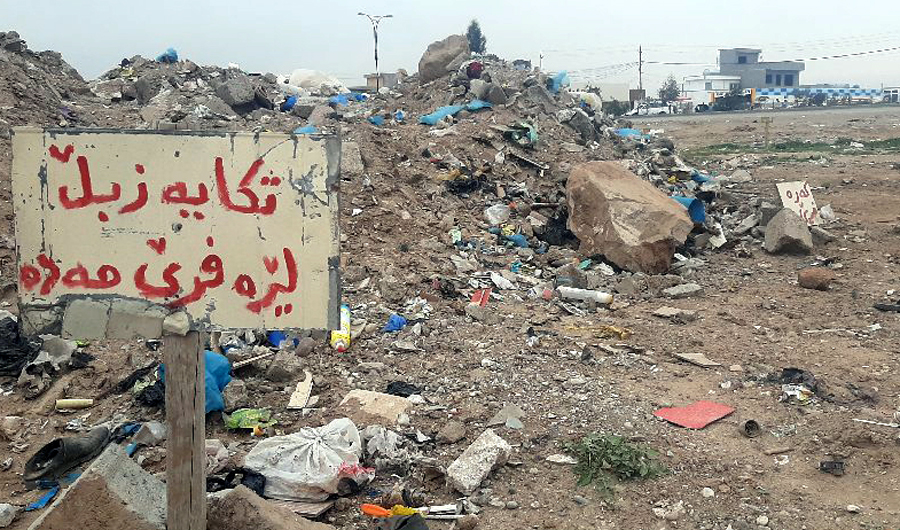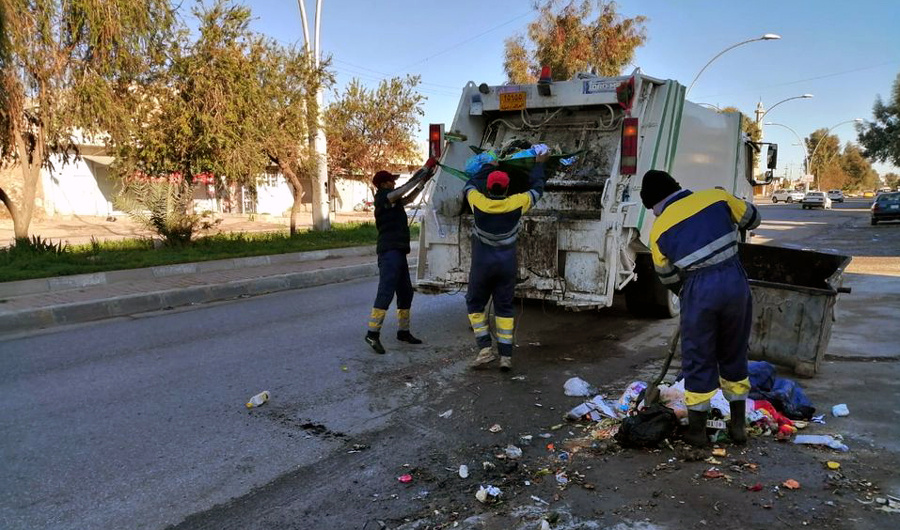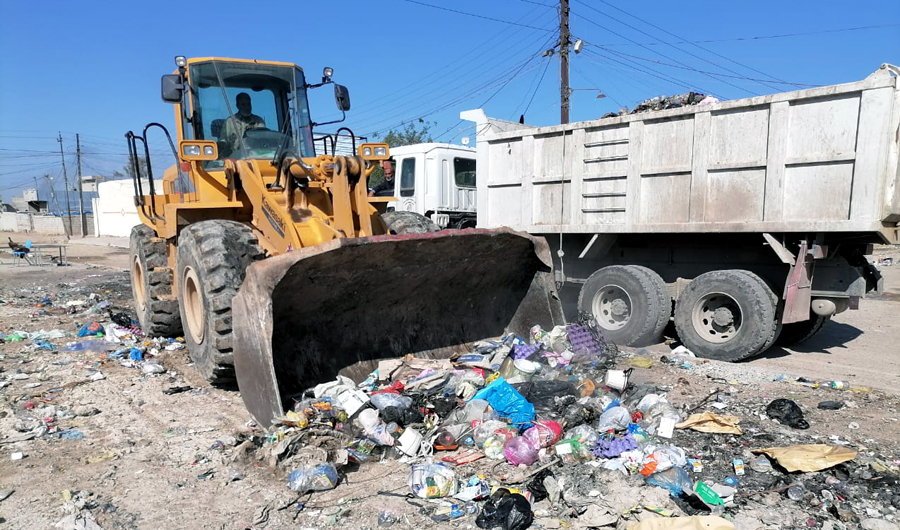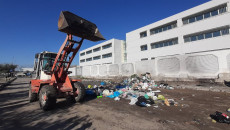Sara Diler was watching news about tidiness campaigns in Kirkuk to sweep piles garbage all over the city while the scene at their neighborhood was the same. Diler is resident of Shorija neighborhood, one of Kirkuk neighborhoods dumped in garbage due to absence of regular garbage collection by the company had a contract with local authorities, expired in 2017.
“TVs talk about tidiness campaign but the scene downtown is the same,” she told KirkukNow. The alternative is three-wheel cargo motor bikes whom take a bag of garbage for 1,000IQD but no one knows where to, she added.

March 2021: Residents of Rahimawa neighborhood cleaned a place where garbage was piled and ask people not to dump garbage any more. Photo for KirkukNow.
The oil rich city of Kirkuk, Iraq's second largest oil reserves, is ethnically a mixed province of Kurds, Sunni and Shiite Arabs, and Turkmen. It has long been at the center of disputes between Baghdad and the autonomous Kurdistan Regional Government KRG.
Kirkuk, 238 kilometers north of Baghdad, is located in a disputed area of Iraq that runs from Shingal on the Syrian border southeast to Khanaqin and Mandali on the Iranian border. Kurds wanted Kirkuk to become part of the Kurdistan region, which has been opposed by the regions with Arab and Turkmen populations.
Article 140 of the Iraqi constitution in 2005 outlined a road map for disputed territories calling for normalization, census and referendum to determine its administration all in two years but only part of the first stage has been implemented up to the present.
Erbil Baghdad dispute and budget shortage made the city thrive for basic services. Since last February, two campaigns were launched to collect wastes in Kirkuk, one by all state offices and the second supported by Patriotic Union of Kurdistan PUK, stronghold in Sulaimaniyah, who was ruling the city till 2017 when Iraqi troops took control of the city after ousting ISIS.
A week just passed over the second campaign, the piles of garbage are raising everywhere. Adnan Rashid, media manager of Kirku municipality said the last campaign successfully removed 5o tones of garbage from downtown and suburbs. "The city looked different but the campaign should go on to avoid piling."
"We pile trash in front of our doors till the motorbikes come, otherwise I take it to roadsides out of town," Said Yousif Sirwan, a resident of Kirkuk.
Now some people and youngster with three-wheel cargo bikes collect trash from houses and waste it at the entrance of the city where wind spreads it over to the town again.
"I feel so embarrassed to throw garbage out of town and usually do it at night because I feel I am damaging my city by myself."
"I feel so embarrassed to throw garbage out of town and usually do it at night because I feel I am damaging my city by myself."
Sirwan says people are obliged to do that while it is the duty of the government to collect garbage.

Kirkuk municipality staff cleaning a street in Kirkuk in march 2021. Photo exclusively for KirkukNow.
Kirkuk municipality repeatedly said they can collect only 300 tones out of the 1,200 tones daily piled in the city as Iraqi government cut its budget from 1.2 billino to 0,2 billion only.
"People has to pile garbage in a proper place out of town not on pavements and streets so that later its easily collected," municipality speaker said.
Garbage collection was free of charge but currently the government charges each house $2 a month. People protest irregular garbage collection despite imposing fees.
"We had many activities about garbage collection and we will not be silent. We told head of municipality he has to resign if the situation lasts and will file lawsuit against him," said Mohammed Jalil, head of Shaqam Group, defending public rights in Kirkuk.
"We are waiting for concrete steps, if no results then we take other civil ways," he added.
"We are waiting for concrete steps, if no results then we take other civil ways," he added.
Kirkuk MPs in Iraqi parliament watching the Kirkuk administration in place of the dissolved provincial council admit lack of proper budget yet blame local authorities as well.
"Beside lack of proper budget, the administration of the city is accountable for the situation and also careless," said Mariwan Nadir, Iraqi MP from Kirkuk. Nader said Iraqi minster of municipality confirmed that budget of all municipalities in Iraq were cut in 2020 as no federal budget law passed.
Kirkuk has received 500 billion Iraqi Dinars in 2019 yet so far 2021 has not been endorsed by Iraqi parliament.
"Campaigns are temporary and can't put an end to the situation," he added. Nadir said they try to earn a temporary budget for Kirkuk municipality.






